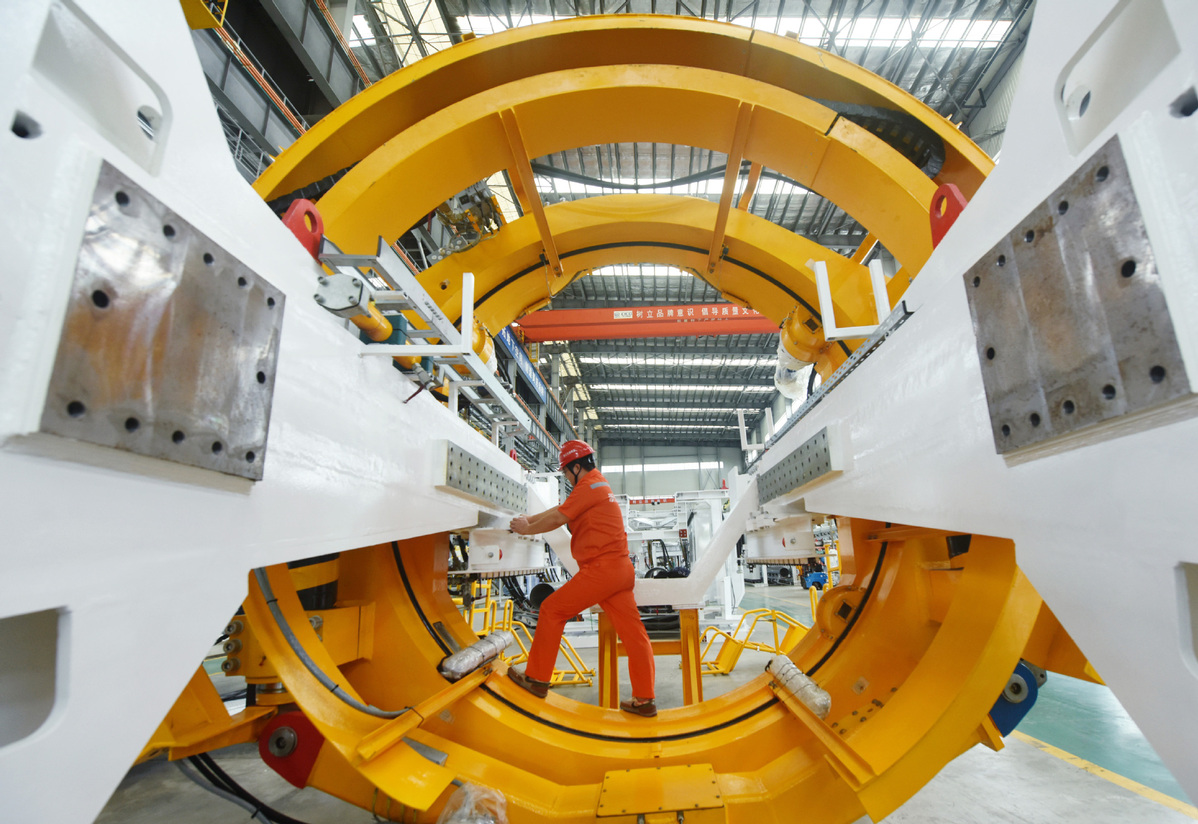GDP growth to 'top development agenda'
By ZHANG YUE | CHINA DAILY | Updated: 2022-12-30 08:52

Forum says policies will vitalize biz, boost consumption, revive real estate
China is likely to place more emphasis on economic growth in its development agenda for the next year and beyond; the country is also expected to introduce a fresh macroeconomic policy mix to revive business and boost consumption in the upcoming months, economists said on Wednesday.
They shared their observations at a forum hosted by the Academic Center for Chinese Economic Practice and Thinking, which is part of Tsinghua University, on Wednesday afternoon. The forum unveiled a report that mapped out China's growth potential and possible advantages that could emerge between 2023 and 2027.
The report said that to achieve the goal of substantially growing the per-capita GDP to be on a par with that of a mid-level developed country by 2035, it is important to fully recognize and leverage the long-term potential of China's economy. Efforts should be made to boost consumption, revive the private sector and optimize policies to help the troubled real estate sector to recover sooner than later.
Li Daokui, head of the think tank at Tsinghua University, said China's annual GDP growth rate has been trending downward between the years 2009 and 2019. Reversing such a trend is critically important for injecting confidence into various markets, so as to realize the country's 2035 goal. Macroeconomic policy adjustment has thus become imperative.
The report stated that despite notable challenges, several features in China's economic fundamentals like the high savings rate hold potential for long-term growth. In addition, the fast-growing digital economy has been giving China a competitive edge and accelerating the industrial upgrade in recent years.
The Central Economic Work Conference in mid-December said that China will step up policy adjustments and strengthen policy coordination to support the economy in 2023. Fiscal policy will be stepped up and made more efficient, while monetary policy will be precise and forceful.
Jia Kang, a researcher at the Chinese Academy of Fiscal Sciences, said at the forum that the annual tone-setting conference has clearly prioritized development, and recent policy signals all indicated that boosting market sentiment is key. He said he expects more specific targets and growth guidance to come out in the coming months.
He also said once the current wave of COVID-19 infections peaks, and policy unwinding is stabilized to enable proper resumption of work and production, China's economy will embrace a fresh rebound.
Yao Jingyuan, a research fellow at the Counselor's Office of the State Council, China's Cabinet, called for efforts to swiftly explore how to effectively boost consumption and drive manufacturing investment, as they are expected to be two key drivers of growth next year.
"Global economic recovery remains sluggish, and the room for foreign trade to boost growth might become limited," he said.
Economists said at the forum that policies for the real estate sector's recovery will be optimized. The sector, they said, should be able to recover next year, making it another positive factor in revitalizing overall growth.
"Yet, the policy will still be tailor-made to meet the demand of those with a basic housing need and those who need to improve their housing conditions, and at the same time, curb speculative investment in the housing market," said Qin Hong, senior researcher at the National Academy of Development and Strategy, which is part of the Renmin University of China in Beijing.
























